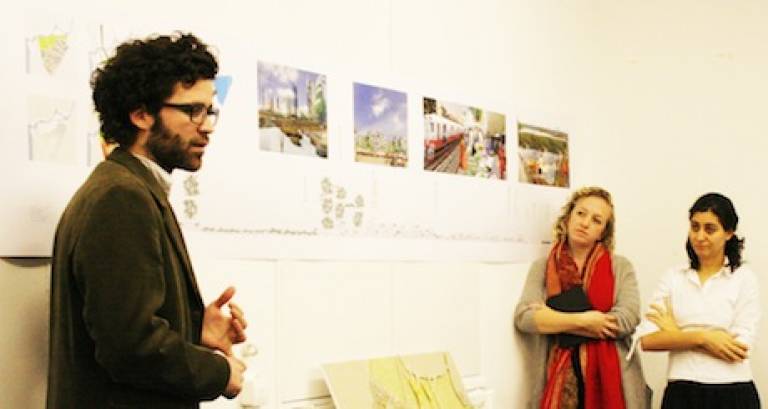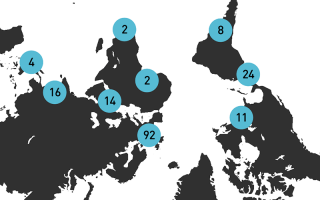José recounts experiences of studying MSc Building & Urban Design in Developmentat the Development Planning Unit

I am an architect graduated from Pontificia Universidad Católica de Chile, with working experience in various scales of design including city-planning, urban design, high-end architecture, social housing, research and international competitions, leading and sharing tasks with multidisciplinary teams in the private, non-governmental and public sectors.
Studying architecture I realised the important relationship among different careers in the development of comprehensive plans and projects in which architects have a main role integrating ideas and contributing creatively into the management and design processes. Therefore, I chose courses on economics, sociology and public policies, which helped me to understand some of the complex dynamics that influence the social and urban processes. I was also interested in passing on my knowledge and ideas to other students becoming teaching assistant of different courses.
Before graduating from architecture I had the opportunity to work in an important Chilean architecture firm, designing one of the finalist proposals for the New Multi-Functional Administrative City in South Korea. Right after finishing my studies I was hired by the urban architecture office Polis where I faced the real difficulties of urban design and urban development from a multi-disciplinary approach in different scales, including public space, regeneration master plans and planning for different urban centres.
I strongly believe that the privilege of having a high quality education is a great responsibility towards those who have less opportunities. Therefore, I decided to refocus my work in the NGO TECHO as Head of Social Housing Design of the South Office, providing high-standard social housing for slum dwellers through public policies and subsidies. The experience gave me the possibility to get the people in need into a virtuous circle towards overcoming poverty, understanding housing from an integral point of view and positioning organisation, participation and access to urban infrastructure, facilities and services as the main support to reach sustainable communities.
Because of my interest to complement and synthesize these experiences, I successfully applied for a scholarship given by the Chilean government to study the MSc Building and Urban Design in Development (BUDD) at University College London. The sum of the core and optional modules, the studio, the group-work, the fieldtrips and the dissertation exceeded my expectations to deepen my knowledge in urban development, urban design and housing.
Learning and sharing academic and working backgrounds with students from different countries was a mind-opening experience that demonstrated the need to understand the marginalised people as relevant actors in the policies and projects designed to improve their life conditions. I was lucky about having an early opportunity to put into practice some of the knowledge acquired in the master course by volunteering in the NGO Thinking Development, designing a school in Port-au-Prince to replace the one that was destroyed by the Haiti earthquake in 2010.
After finishing the postgraduate programme I was hired by the multinational London-based architecture firm Foster + Partners (F+P). The BUDD course enhanced the importance of design and the role of the designer in the process of any urban and architecture project and working in F+P complemented my understanding about the scope of design, reinforcing it from the practice. The fact that every design decision matters and is tensioned by rational and sensitive approaches has to be exported to all scales of design, from city-planning to social housing.
Back in Chile, I worked for the Ministry of Housing and Urbanism, designing and implementing a housing programme to regenerate dilapidated social housing blocks and their urban environments linking different ongoing initiatives and ‘bringing the city’ to the ones that paradoxically only a few decades ago were expelled to the periphery by the housing policies implemented by the same institution. There, I could reflect around some issues discussed during the master course, related to the relevance of power and the responsibility that public institutions have in improving the quality of life of the poor.
Consolidating the experiences mentioned above, in 2014 I co-founded the architecture and urban design firm llll where we have had the opportunity to propose urban plans and design housing projects for the private and public sectors, and from where we expect to contribute to the cities and their inhabitants with ideas and designs thought for them, and not for us.
 Close
Close


